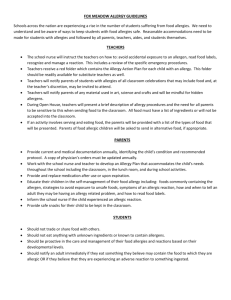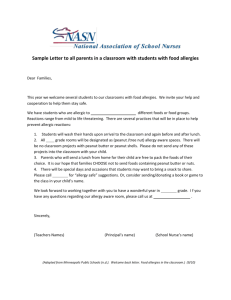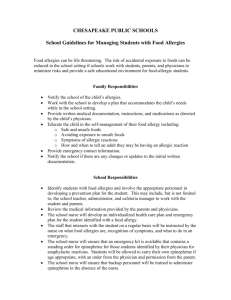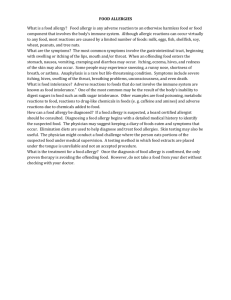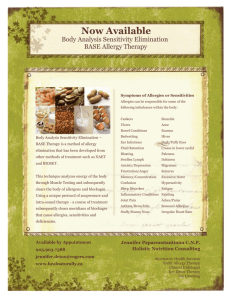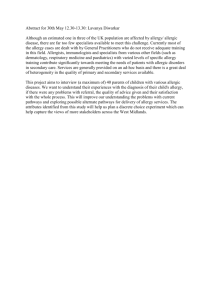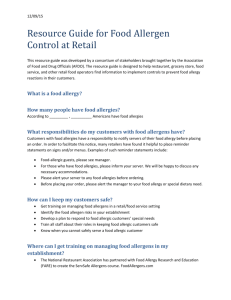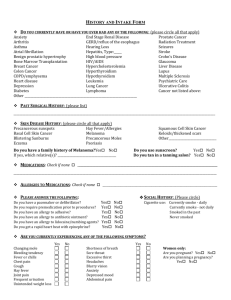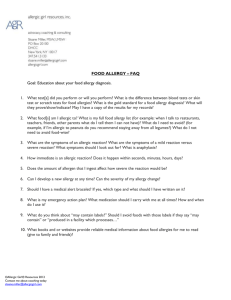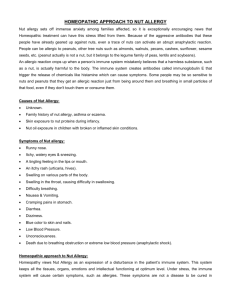Carlisle Local Schools - Carlisle Local School District
advertisement
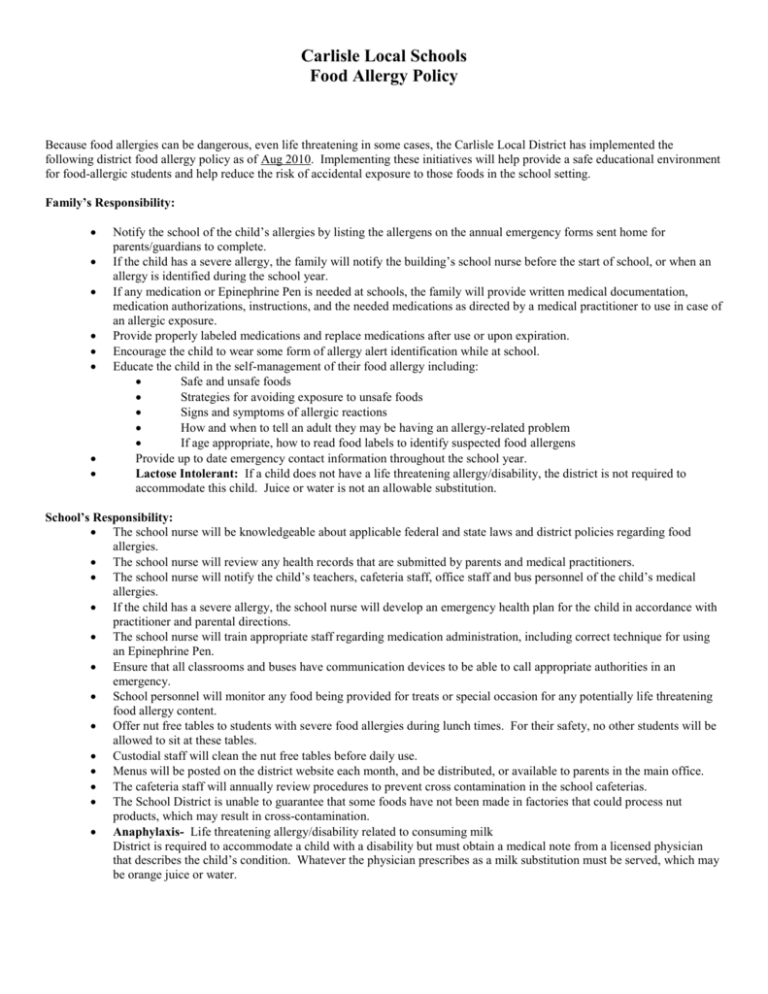
Carlisle Local Schools Food Allergy Policy Because food allergies can be dangerous, even life threatening in some cases, the Carlisle Local District has implemented the following district food allergy policy as of Aug 2010. Implementing these initiatives will help provide a safe educational environment for food-allergic students and help reduce the risk of accidental exposure to those foods in the school setting. Family’s Responsibility: Notify the school of the child’s allergies by listing the allergens on the annual emergency forms sent home for parents/guardians to complete. If the child has a severe allergy, the family will notify the building’s school nurse before the start of school, or when an allergy is identified during the school year. If any medication or Epinephrine Pen is needed at schools, the family will provide written medical documentation, medication authorizations, instructions, and the needed medications as directed by a medical practitioner to use in case of an allergic exposure. Provide properly labeled medications and replace medications after use or upon expiration. Encourage the child to wear some form of allergy alert identification while at school. Educate the child in the self-management of their food allergy including: Safe and unsafe foods Strategies for avoiding exposure to unsafe foods Signs and symptoms of allergic reactions How and when to tell an adult they may be having an allergy-related problem If age appropriate, how to read food labels to identify suspected food allergens Provide up to date emergency contact information throughout the school year. Lactose Intolerant: If a child does not have a life threatening allergy/disability, the district is not required to accommodate this child. Juice or water is not an allowable substitution. School’s Responsibility: The school nurse will be knowledgeable about applicable federal and state laws and district policies regarding food allergies. The school nurse will review any health records that are submitted by parents and medical practitioners. The school nurse will notify the child’s teachers, cafeteria staff, office staff and bus personnel of the child’s medical allergies. If the child has a severe allergy, the school nurse will develop an emergency health plan for the child in accordance with practitioner and parental directions. The school nurse will train appropriate staff regarding medication administration, including correct technique for using an Epinephrine Pen. Ensure that all classrooms and buses have communication devices to be able to call appropriate authorities in an emergency. School personnel will monitor any food being provided for treats or special occasion for any potentially life threatening food allergy content. Offer nut free tables to students with severe food allergies during lunch times. For their safety, no other students will be allowed to sit at these tables. Custodial staff will clean the nut free tables before daily use. Menus will be posted on the district website each month, and be distributed, or available to parents in the main office. The cafeteria staff will annually review procedures to prevent cross contamination in the school cafeterias. The School District is unable to guarantee that some foods have not been made in factories that could process nut products, which may result in cross-contamination. Anaphylaxis- Life threatening allergy/disability related to consuming milk District is required to accommodate a child with a disability but must obtain a medical note from a licensed physician that describes the child’s condition. Whatever the physician prescribes as a milk substitution must be served, which may be orange juice or water.
